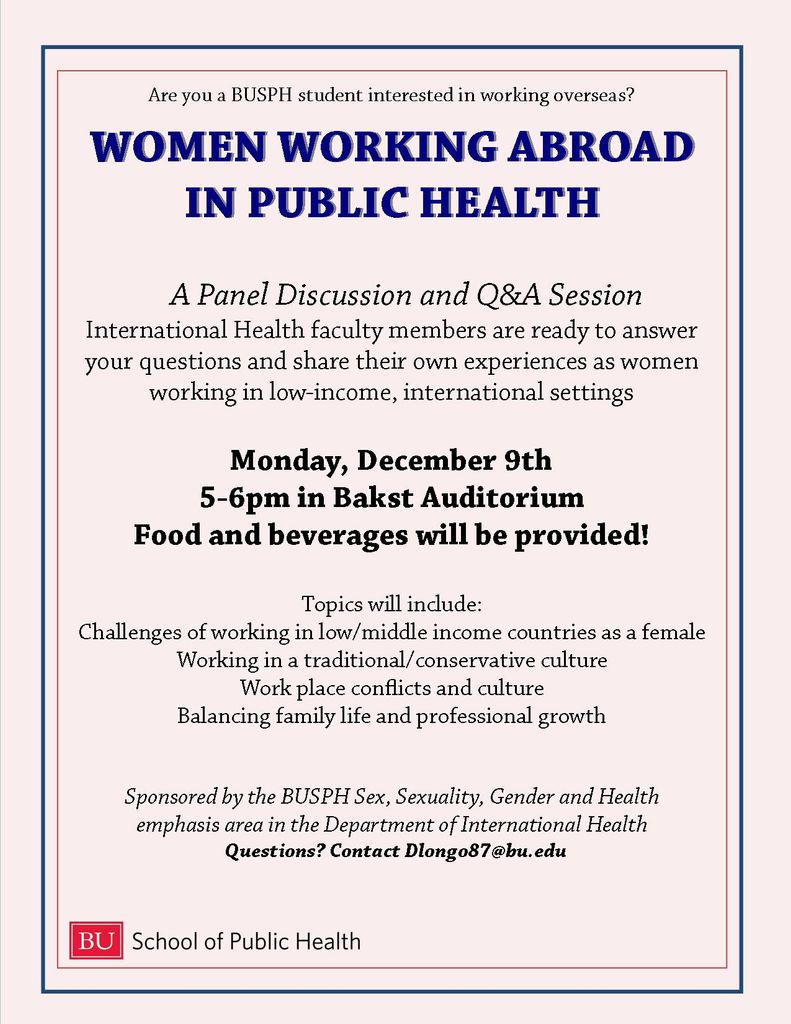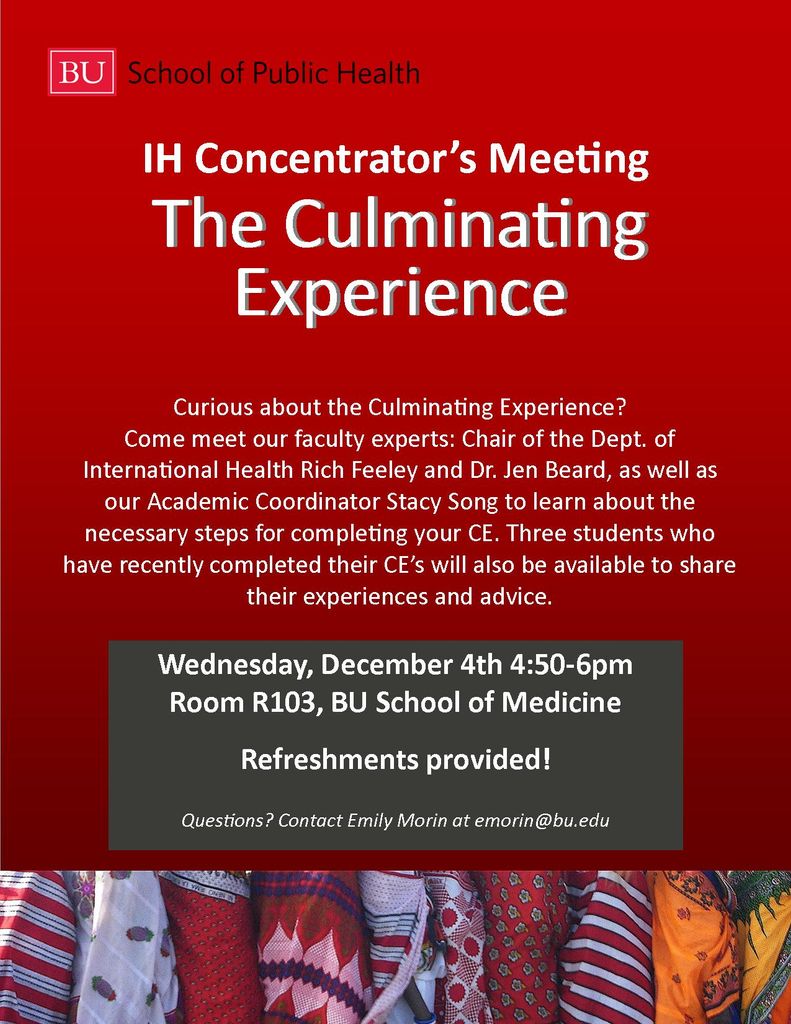Category: Fellowships
Global Health Corps 2014-2015 fellowship openings are now posted, apply by January 26th!
Global Health Corps is excited to announce that the job descriptions for the 2014-2015 fellowship are now up. GHC is looking for driven, passionate, young leaders with diverse skill sets and experiences to join the movement for health equity. One-year paid fellowship positions are available with high impact NGOs and government organizations in East Africa, Southern Africa and the US. Applicants can apply for up to 3 positions that match their interests and skills, from project management to monitoring and evaluation, engineering, communications and more.
We have a variety of job opportunities across many sectors and disciplines, including:
· Senior Research Associate at the Ministry of Health in Zambia
· Program Coordinator at Clinton Health Access Initiative (CHAI) in Uganda
· Monitoring and Evaluation Fellow at Partners in Health in Rwanda
· Community Nutrition Support Fellow at Clinton Development Initiative in Malawi
· Global Program Associate at Planned Parenthood Federation of America in New York
· Monitoring and Evaluation Fellow at LifeNet International in Burundi
Applications for the fellowship close January 26, 2014.
Apply at http://ghcorps.org/fellows/apply/
WHAT WE ARE LOOKING FOR
The only requirements are that applicants must:
· Be 30 years old or younger
· Have at least a bachelor’s degree
· Be proficient in English
No prior health or international experience is necessary!
WHAT BENEFITS FELLOWS RECEIVE
· Livable monthly stipend
· Free housing and utilities
· Health insurance
· A professional development grant of $600
· A completion award of $1500
· An advising program that pairs fellows with a mentor in their area of work or interest
· A two-week Training Institute at Yale University in the United States to begin the fellowship
· An End-of-Year retreat in East Africa to finish the fellowship
· Three multi-day retreats during the year
· Travel to placement site, all trainings and back home
· Professional development and personal support from a dedicated in-country program manager
· Accompaniment program led by Still Harbor
Applications close January 26, 2014. Apply at http://ghcorps.org/fellows/apply/
Environmental Health courses with a global focus, still open for Spring 2014!
EH749 Global Environmental Health (This course counts towards IH credit)
Content: This class introduces students to 1) frameworks for understanding global environmental health issues including sustainable development and the demographic/epidemiological/environmental transitions; 2) methods for characterizing global environmental burdens of disease, including linkages with surveillance systems and information gaps among countries; and 3) the role of international institutions and organizations. Global environmental problems will be explored, including issues related to infrastructure and the built environment, goods movement, energy systems, climate change adaptation, and food production.
Skills:
- Assess global environmental threats, environmental contributions to global disease burden and the relation to the millennium development goals.
- Determine connections between major global economic/resource trends and environmental health risks.
- Assess the sustainable development framework and how it relates to planning effective interventions to reduce environmental burden of disease.
- Evaluate and recommend policy measures and interventions to address/reduce the environmental burden of disease, taking into account social and economic implications.
- Recommend assessment approaches in developing (resource limited) vs. developed countries
- Evaluate and recommend among the range of analytical tools for characterizing and addressing environmental issues in a given country/region.
Pre-reqs: The MPH environmental health core course requirement. Please contact the professor, Dr. Junenette Peters (petersj@bu.edu), if you have not met this pre-req. but are interested in taking this course. This course counts towards MPH IH credit.
Course Offered: Tuesdays 2-445PM, January 14-April 29
EH 780 Great Calamities and Their Consequences for Public Health (This course counts towards IH credit)
Content: “Those who cannot remember the past are condemned to repeat it.” (Santayana) How did our predecessors in public health successfully respond to the horrific cholera epidemics of the 19th century when the germ theory was not yet accepted? What lessons can we learn from this and other examples about how to deal with current public health problems, also in the face of unknowns? We discuss public health calamities of the past 200 years—including infectious disease epidemics, industrial disasters, pharmaceutical and food-related problems— that changed our ideas of public health as well as public health practice. We examine implications for both developed and developing countries. Students debate current public health issues as well as research and present to the class a public health disaster.
Skills:
- Identify major public health calamities of the past 200 years which have had significant impact on public health practice, including natural (e.g., cholera) and man-made (e.g., Chernobyl, Bhopal) calamities;
- Describe selected infectious disease epidemics of the past two centuries, with emphasis on contemporary responses to epidemics in terms of disease control, and with the current status of diseases such as influenza;
- Understand the evolution of the germ theory of disease;
- Describe the short and long term health effects of massive public exposure to physical or chemical hazards such as ionizing radiation, air pollution, persistent organic pollutants, methods used to identify long-term health effects, and the evolution and current status of exposure standards;
- Outline the evolution of the regulation of pharmaceutical drugs;
- Describe the public health ramifications of food contaminants such as methyl mercury and prions.
Pre-reqs: None. This course counts towards IH credit.
Course Offered: Mondays 2-4:45PM, January 13-May 5
EH800 Community Based-Methods in Environmental Health (This course counts towards SB credit)
Content: Low-income urban communities are exposed to many environmental and non-environmental stressors, and policy measures that do not reflect this complexity may not adequately address local health concerns. This course focuses on tools and techniques for assessing and addressing environmental health risks in these complex community settings, with an emphasis on health impact assessment, community-based participatory research, and analytical methods to evaluate environmental justice. Students will work on case studies with local community organizations or government agencies on a topic of mutual interest.
Skills:
· Describe the range of analytical tools available to characterize and address environmental problems at a community scale
· Use public databases to characterize patterns of community exposure to environmental stressors and the baseline health status of key subpopulations
· Evaluate the environmental justice implications of public policy measures
· Specify the pathways through which traffic and its related infrastructure can influence health
· Explain the contributors to residential environmental exposures, including outdoor sources, indoor sources, and structural factors; and design interventions to optimally improve the health of residents
· Design, conduct, and present a health impact assessment
Pre-reqs: The MPH core course requirements in Epidemiology and Environmental Health or consent of instructor. This course counts towards SB credit.
Course Offered: Spring 2014 Wednesdays, 2-4:45PM January 15-May 7
GlobalPost new international journalism fellowship opportunity
GlobalPost is pleased to announce an international journalism fellowship for 20 young reporters, as part of a project that will explore global youth unemployment. And we want to enlist you to help us spread the word about this exciting opportunity for the next generation of correspondents around the world.
The project, which is part of our foundation-supported initiative, will produce a yearlong GlobalPost 'Special Report' in which 10 teams of top correspondents who are relatively new to the field of international journalism will report in 10 different countries. The project is funded by the Ford Foundation and the deadline for applications is December 31.
The selected applicants will form teams of writers, photographers, videographers and audio reporters who will set out to document the stories of this disturbing trend in the global economy that has left 290 million people between the ages of 15 and 24 without jobs and un-enrolled in school.
In some places, the phenomenon is causing an upsurge in street violence. And in others it is inspiring pro-democracy movements spread through social media. But most of all, these unprecedented levels of youth unemployment are squandering the valuable energy and new ideas of too many young people in too many corners of the world.
We are soliciting proposals from individual correspondents or teams of two correspondents who can convince us that they have an important story to tell about youth unemployment in a part of the world where this trend is having a profound impact.
The fellows will receive training, mentoring and editing at every phase of their reporting. Their work will be presented in partnership with RYOT News and published as part of a GlobalPost Special Report. Please take a look at our announcement of the fellowship program and help us find the best candidates from all over the world to take on this important story. Our online application form can be found here.
All best,
Charlie
Charles M. Sennott,
Co-founder and Editor-at-Large
![]()
Emergency Medicine in India – Practicum Opportunity – for Spring or Summer
Background: There is a great need for more epidemiological data and analysis to help guide emergency medicine efforts on a local and national level in India This practicum opportunity is a joint placement between Kerala Institute of Medical Sciences (KIMS - http://www.kimskerala.com) and Apollo Hospitals (http://www.apollohospitals.com) network. Liz Clark, a BUSPH Alum, who works with KIMS, has reached out to BUSPH to offer this opportunity. The student would also be working Ms. Clark’s collaborator, Dr. Mahesh Joshi, the head of all Emergency Medicine departments for Apollo Hospitals, as well as theAcademic Director for the Society of Emergency Medicine of India. MPH students with EMT’s or ER nurses or others with experience or interest in emergency medicine are encouraged to apply.
The anticipated scope of work is:
1) The student will establish a set of KPIs (Key Performance Indicators) that are applicable to the Indian context. The student is expected to do some research prior to coming to India. (Ms. Clark and Dr. Joshi will interact with the student to discuss needs and what's realistic in the Indian context.) KPIs will be agreed to in advance of arriving in India.
2) The student would come to KIMS (Trivandrum) and Apollo (Hyderabad) to collect the agreed data points as well as document basic patient systems in both EDs. The student will be provided housing by both hospitals and transport to and from the hospital by KIMS. All other expenses will be borne by the student. All work they perform will remain confidential to the hospitals.
3) The student will create a final report for both hospital's executive management. In this report they will document the KPIs, explain how the KPIs compare to international benchmarks, and then make recommendations to increase operational efficiencies while maintaining or increasing patient safety.
To respond, submit a letter of interest, a resume and dates of availability to Joe Anzalone via josanz@bu.edu . A need-based Santander award is a possibility.
IH Focus groups for graduating students-dinner or lunch sessions, please sign up ASAP
For all students graduating in January 2014,
You are invited to participate in a one-hour lunch or dinner session with several of your IH peers and one faculty member, to discuss how your experience in the Department of International Health at the BU School of Public Health has been. We value the input we get from our students, and hope that many of you can sign up for one of these sessions:
- Thursday, December 5th 12:30-1:30 in CT374
- Tuesday, December 10th 5-6 in CT374
- Thursday, December 12th 12-1 in CT374
If you can make it to one of the above time slots, please email Emily Morin at emorin@bu.edu.
IDEO Fellowship applications open, due January 6th
A note from IDEO staff...
"IDEO.org is accepting applications for our fourth class of Global Fellows! Over the past three years, you have helped us find and cultivate future leaders in the social sector with incredible success. Today, we invite you to apply, spread the word, and support us in selecting a new team to improve the lives of people in low-income communities around the world.
We are looking for leaders in the social sector who have demonstrated professional experience improving lives in low-income communities.
The IDEO.org Fellowship Program enables future global leaders from the business and social sectors to spend a year working full-time with experienced designers on social impact challenges in the United States and around the world. Fellows will create solutions for nonprofits, social enterprises, and foundations on an array of topics, like agriculture, water and sanitation, health, financial inclusion, unemployment, and more. Collaborating in small multidisciplinary teams, Fellows learn, grow, and innovate to make the world a better place. If you’re ready to join a team that’s passionate about ending poverty and have the experience and skillset to make it a reality, this is exactly what you’ve been looking for...
Because you’ve always wanted to...
- Tackle poverty-related challenges and see real impact from your work.
- Gain expertise in human-centered design and work with world-class designers.
- Travel the world while connecting and designing with individuals and communities firsthand.
We're a match if...
- You have applied your skills to real-world problems. You are grounded in insights about challenges communities face and have worked on the ground with a nonprofit or social enterprise.
- You are able to demonstrate key components of the design process and you can easily switch from macro to micro thinking
- You are an excellent communicator with great instincts about how to synthesize and tell a captivating story, build a deep rapport, and give honest feedback.
- You are used to working across industries and disciplines and comfortable embedded in multidisciplinary teams.
Have what it takes?
- Minimum of five years of professional full-time work experience; or, an advanced academic or professional degree related to business, public policy, international development, economics, finance, or a related field, plus three years of work experience.
- English fluency (written and spoken). Additional language capabilities are preferred.
- Ability to work from September of 2014 - October 2015 in San Francisco (IDEO.org can help support visa applications).
- Think you're the perfect candidate? Find out What it Takes to be an IDEO.org Fellow.
- Frequent travel, getting your hands dirty, and changing the world are required.
Read more about the Global Fellowship and apply here by January 6 at 5:00 pm PST, or help us spread the word to your social network on Facebook or Twitter by clicking here."
Global Health Corps Fellowship applications are now open!
|
Applications for the 2014-2015 Global Health Corps fellowship are now open! Global Health Corps is creating a new breed of leaders that develop innovative solutions to the world's most challenging health problems. Please help us find our next class of emerging leaders. Part two of the application will be posted on December 6, 2013. Applications close January 26, 2014.
Global Health Corps places talented individuals from a wide variety of backgrounds in high impact roles in NGOs and government agencies in sub-Saharan Africa and the US in a 1-year, paid fellowship. Through intensive training, professional development, mentorship, and thoughtful community building, we ensure that fellows are equipped to be global health changemakers during their fellowship and beyond.
Fellows work in teams of two – an international fellow paired with a local fellow– creating a partnership that is central to Global Health Corps’ work building a community of leaders that reach across sectors, disciplines, and borders to effect change. From project management to monitoring and evaluation, engineering, communications, and architecture, our fellows bring diverse skillsets and experiences to the movement for health equity. Please join us in spreading the word that our applications for the next fellowship class are now open!
Barbara Bush and the Global Health Corps Team
|










